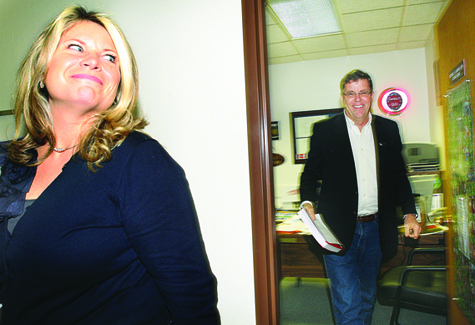No. 6 Story of the Year: 13 positions cut amid town budget woes

In November 2009, when the then-Riverhead Town Board was developing the budget for 2010, it appeared at one point that taxes could rise as much as 18 percent. The budget presented by then-Supervisor Phil Cardinale, who was defeated by Republican Sean Walter in the November elections, didn’t include $950,000 for dispatchers, an expense town voters opted to keep in a special referendum. There also was question about whether $3 million acquired from Riverhead Resorts, which was in contract to buy land from the town, could be used to offset taxes in the general fund, as Mr. Cardinale had proposed.
But as the board was nearing the Nov. 20 deadline by which a budget had to be adopted, board members decided to raid their reserves to the tune of $4.7 million to offset the potentially large tax increase. The adopted budget called for a tax rate increase of just 3.7 percent.
Problem solved, right?
Not according to Town Supervisor Walter, who took office in January. He spoke of a reoccurring deficit in the town budget that resulted from the use of one-shot revenues to lower taxes. He said the problem went back several years, and that the town couldn’t continue to expect these revenues to be available. It had to reduce its spending, he said. The 2010 budget also contained about $800,000 in unrealistic revenues, such as the sale of a town budget and a lawsuit settlement, neither of which happened.
When Mr. Walter unveiled his proposed 2011 budget in October, he called for a reduction in town spending, the abolition of six full-time and seven part-time jobs, and a 4.3 percent tax rate increase.
“This is a vital step in our attempt to get government to live within its means,” he said.
It wasn’t popular with the employees union, which had rejected Mr. Walter’s request for a 5 percent pay cut. And it wasn’t even popular with his fellow Town Board members. Two council members wanted the budget cut further and the other two wanted to restore the positions slated for abolition.
In the end, there wasn’t a three-vote majority for any changes, and Mr. Walter’s budget became the adopted budget by default. And 12 of the 13 positions were eliminated, with Mr. Walter saving one of them by cutting a position from his own office.


